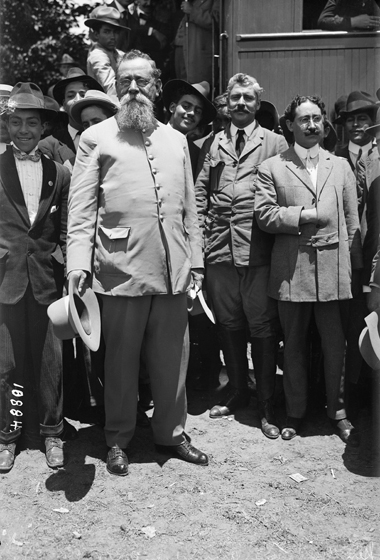
Nicolas Asfouri/Agence France-Presse — Getty Images
Li Na, who beat Andrea Petkovic on Tuesday, has long been considered the most impressive athlete among the Chinese women.
MELBOURNE, Australia — On a personal level, the stakes should be the same when Caroline Wozniacki and Li Na play in the
Australian Open semifinals on Thursday. Neither woman has won a Grand Slam singles title, and a victory would put one of them a match from achieving it.
-
On Twitter: Follow Christopher Clarey, @christophclarey, for more Australian Open results.

New York Times bloggers are following all of the action at the 2011 Australian Open.
Luis Enrique Ascui/European Pressphoto Agency
Li Na has not lost a set on her way to the semifinals of the Australian Open, where she will face Caroline Wozniacki.
But viewed through a wider lens, the agendas diverge: Wozniacki needs to win this tournament to give herself and her No. 1 ranking credibility; Li needs to win it for more than a billion other reasons.
Of all the story lines still available in the women’s event, a Li victory, which would give China its first Grand Slam singles champion, would seem to be by far the most irresistible, and though Li and China have come this far before, the manner of Li’s victories this year in Sydney and now Melbourne has many — tennis executives presumably among them — looking ahead with anticipation.
Li has not dropped a set, not even been pushed to a tie breaker, on her way back to the semifinals here, where she and her compatriot Zheng Jie were beaten last year.
Among this year’s believers is Andrea Petkovic, the instinctive, outspoken young German whom the ninth-seeded Li beat, 6-2, 6-4, on Tuesday in the quarterfinals.
“It’s just the feeling, how she is on court, her confidence and the way she’s playing,” Petkovic said. “I just feel she has a great chance to win the tournament. I don’t want to put pressure on her, obviously. It’s just a feeling.”
Li knows pressure. She has been hearing the question “When will China have a Grand Slam champion?” since she reached the third round here in 2005. She and the other talented players of her generation, including Zheng and Peng Shuai, who lost in the fourth round after holding two match points against Agnieszka Radwanska, are collectively known as the Golden Flowers. In China, they are among the most recognizable sports figures, and the women’s team victory in last year’s Asian Games — a minor event in global tennis terms — was a significant story at home.
Chinese women have won Olympic gold medals and Grand Slam titles in doubles, but a major singles trophy remains the missing prize, made more pressing by the sense that the follow-up generation, once called the Little Flowers, has yet to make significant inroads on tour.
For now, and perhaps longer than that, it looks to be up to the 28-year-old Li, a late bloomer with a flower tattoo on her chest and an independent streak who, frustrated by her results on the satellite tour, once took a two-year break from the game to follow a media-studies program at a Chinese university before returning in 2004.
“I couldn’t find the positive thing,” she said of her sabbatical. “So I came to university for two years, also my husband with me. So we are in the same class.”
Seven years later, she and her husband, Jiang Shan, continue to work side by side. A former leading Chinese player, Jiang is back to being her primary coach after she parted ways with Thomas Hogstedt, a Swede who is now employed by
Maria Sharapova.
Li has long been considered the most impressive athlete among the Chinese women. Her powerful legs and smooth base-line technique represent a very solid platform for hitting her relatively flat, low ground strokes. But she has kept faltering for good reasons: her margins for error are low, and she often becomes edgy and inconsistent under big-match pressure.
There should be plenty of that from here to the finish with the top three women’s seeds — Wozniacki, Vera Zvonareva and
Kim Clijsters — still in contention. But Li should hardly walk into Rod Laver Arena without belief Thursday. She beat Wozniacki in both of their matches last season, winning in the fourth round here last year. She has the weapons and foot speed to trump Wozniacki’s world-class defenses, but Wozniacki, the not-quite-great Dane, is a remarkable competitor and underrated tactician.
She proved it again by rallying to defeat Francesca Schiavone, 3-6, 6-3, 6-3, on Tuesday. At the start, Wozniacki was marooned too far behind the baseline, while Schiavone, an Italian, used her panoply of shots and spins to spectacular effect. But Wozniacki gradually regained essential ground: advancing in the court and reeling off six straight games from 1-3 down in the second set as Schiavone, 30, began looking weary in the legs and the head.
That was no surprise considering that Schiavone is 10 years older than Wozniacki and had required 4 hours 44 minutes on Sunday to defeat
Svetlana Kuznetsova in the longest recorded women’s singles match in Grand Slam history.









